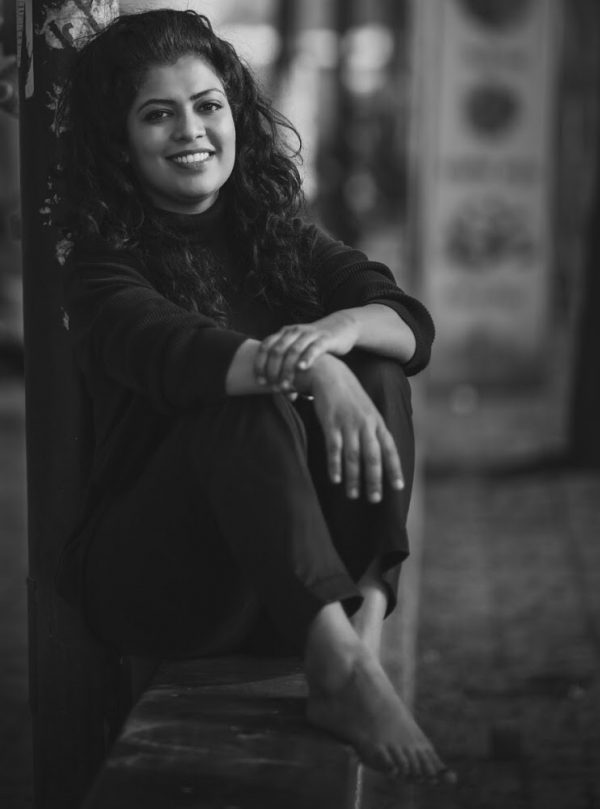While there is a lot of talk about sustainability across the country, there is not much that is really being put into execution. Mumbai-based Pooja Monga is dynamically changing that. Monga is the founder of Saltpetre – Minimal x Sustainable x Work wear, a sustainable fashion workwear brand for women.
She was recently shortlisted as one of the eight finalists for The ‘Circular Design Challenge’ – a collaboration of Reliance Industries, Elan ‘Fashion for Earth’ initiative, Lakmé Fashion Week and the United Nations in India. The challenge shortlisted designers based on innovative collections they made using materials from diverse sources of waste. All Saltpetre products are produced using scientifically validated sustainable processes.
Saltpetre is not just a label, it’s a statement delivering a thought and concern that we need to understand now more than ever. SheThePeople.TV spoke with Pooja Monga about Saltpetre, sustainability, the challenges she faces in making sustainable products accessible.
How did Saltpetre come into existence?
Saltpetre, an eco-minimal brand of lifestyle products, was launched in November 2017 with the intention of making sustainable products accessible. A project on water sustainability at my last corporate job exposed me to the dissonance that while a lot of us were discussing climate change and other environmental issues, we were not using eco-friendly products in our daily lives.
The issue is that sustainable products are not accessible in terms of design, affordability and availability, making it difficult for the masses to adopt a sustainable lifestyle
This is the problem I wanted to address. I call myself a business mind that is in service of a green heart, so I thought of solving this problem through business.

The Saltpetre Collection
How did your experience in the corporate world shape your ideology surrounding the environment?
My corporate experience exposed me to a lifestyle overwhelmed with trends and excesses that are often short-lived and earth-burdening. My last project on water sustainability made me acutely mindful of the futility of such a lifestyle.
Please take us through the process of how you brought together a team that understood your vision and made Saltpetre what it is today.
I spent a lot of time articulating my vision so that it would not just be understood, but inspire like-minded people to contribute with their skills.
You said in a video byte that “sustainable is not accessible”. Please elaborate.
Today, most sustainable labels are small, local businesses working on either up-cycling practices or reviving the loom. With severe limitations on either their supply or production sides, or both, they are only able to offer limited edition and expensive output. While there is a niche market for this, their combined capacity cannot create the magnitude of dent that we need. They are unable to become a viable alternative to ‘mainstream’ producers of lifestyle.
The brand “tracks the environmental footprint of products from cradle to grave”. What were the challenges you faced, or still face, in this journey?
We transparently share information on inputs that go into the making of each of our products with IIT-Kharagpur and they then quantify the eco-impact of our products and compare it to a corresponding industry standard.
The biggest challenge in doing this is availability of industry data for the Indian market

The Saltpetre Collection
In a recent conversation with us, scientist Minal Pathak said it’s important to understand that while national and local policies have been suggested and are getting to work, citizens have a personal responsibility to rectify and carefully proceed further. How important do you think it is for citizens to start owning up to our responsibility now? How do you think manufacturers and consumers can make decisions so we can all contribute towards sustainable development?
Small actions cumulated over many people and over time make a big difference, so it’s important that not only do we start taking more eco-friendly actions in our everyday, but also use our wallets to vote for the right businesses.
By imbibing sustainability into the core of their business models, businesses can make it convenient for people to adopt and pressure their partners along the supply chain in the same direction
Your work shows that fashion, too, can serve as a platform for change. How can we take this forward? What more is in store with Saltpetre?
Fashion is a complex industry involving a variety of supply chains covering a lot of industries — agriculture, manufacturing, shipping, retail. Fashion’s carbon footprint is tremendous. Making mindful choices in both production and consumption of fashion can have a domino effect on a lot of other industries. Our immediate task at Saltpetre is get more people to know about the brand and make it easily available through mass retailers. We will also be expanding into other categories of apparel for men and for kids.
Making mindful choices in both production and consumption of fashion, can have a domino effect on a lot of other industries

Pooja Monga
Who are the women that have inspired you?
I am most inspired by the underprivileged women of our country. To me, they epitomise gentle strength. Being kind, loving, resourceful, earth-tuned in the toughest of conditions. I think the world needs more of this quality – ‘gentle strength’.
I think the world needs more of this quality – ‘gentle strength’
What would you like to advise aspiring women entrepreneurs?
Have faith and take the leap.
Also Read: The Earth Is Very Close To Tipping Point: Scientist Minal Pathak

